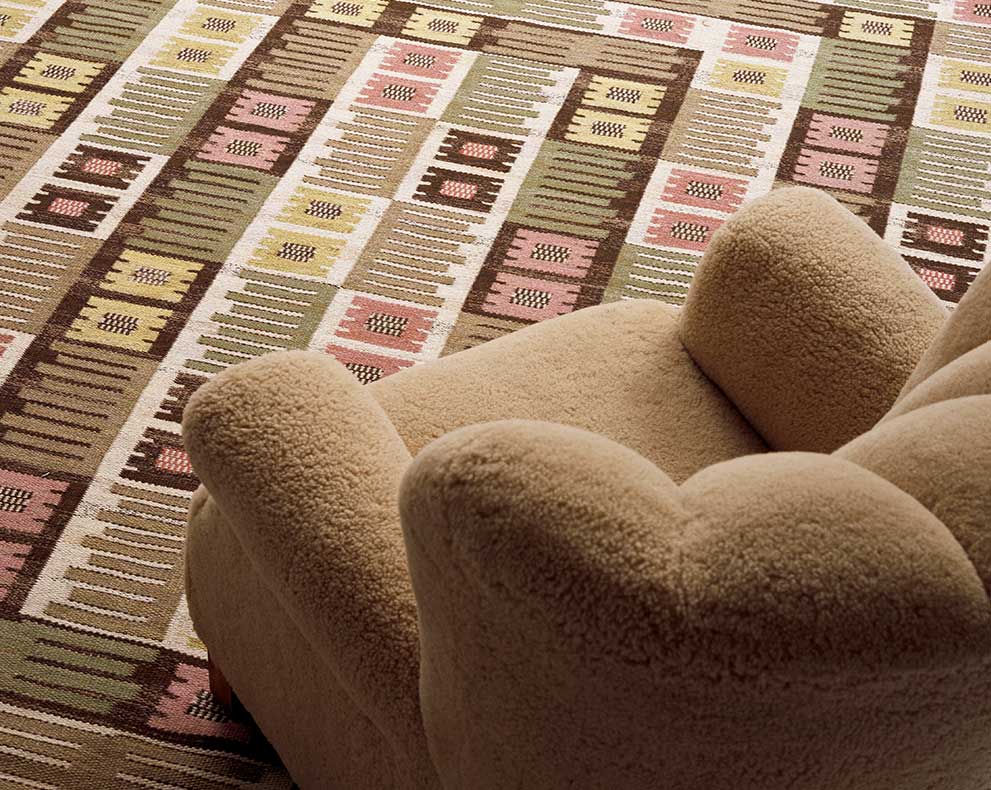Swedish textile treasures F324
It is not just the cold that has influenced a strong tradition of talented textile artists in Sweden. We have early received influences from Asia through the Vikings, but even earlier than that, the textile patterns of the Orient have found their way here. From the Middle Ages, bed covers were tied in ‘rya’ technique. Sweden has a long tradition of textiles for everyday life and parties.
The Swedish textile tresure is well known not only in Sweden but also abroad. To weave carriage cushions and quilts in rölakan technique (among other techniques) flourished in the middle of the 18th century and was most common in Skåne, Halland, and Blekinge, the regions that previously belonged to Denmark. The Scania region is known for beautiful carriage cushions (åkdynor), used to decorate carriages and homes. These art treasures were a sign of home prosperity and were often kept in chests to be brought out on festive occasions.
One explanation for Sweden's special position in modern carpets and textiles is the household and textile education that started after 1850 and the places of trade that enabled women to make a living from their crafts.
Another explanation for the number of skilled textile designers is the world exhibitions and the local exhibitions (from the 1897 Art and Industry Exhibition in Stockholm onwards). Those who participated were driven to innovate and develop while being inspired by others.
The important magnificent buildings such as The Stockholm Court House (inaugurated in 1916), Stockholm City Hall (inaugurated in 1923), and Svenska Amerika Linjens M/S Kungsholm (1928) were some of the important assignments for the Swedish textile artists in the first half of the 20th century.
Throughout the 20th century, Sweden has had several talented textile artists, some of them are represented in this themed auction.


























